January 27, 2022
Early risers that we are, we were ready to head to breakfast before it was ready for us.
While we waited, I lounged on the hotel deck overlooking the lush green hills. Meanwhile, Susan took photos of our beautiful surroundings until we could smell the coffee.
After breakfast, we walked into Salento, turned right just outside of the town and found Finca Don Eduardo Coffee Farm.
The owner was not Don Eduardo, but Tim from London who told us that Tim from London Coffee Farm didn’t have the same ring to it. We’d been told this was one of the only coffee farm tours in English and as a bonus, it didn’t require a taxi ride to get to. It turned out also to be one of the best. Under a metal roof in an open building, a group of eight people gathered for the tour.
All the others on the tour appeared to be twenty-somethings. One of them recognized us from when we briefly met him on our hike to the waterfall a week and a half ago in Minca. Three others were Israelis who arrived a little late looking tired (or perhaps hungover) and asked if they could have some coffee before the tour began. Though normally not served till the end of the tour, our tour began (and ended) with fresh cups of coffee.
In a Cockney accent, over the course of almost four hours, Tim told us all we could possibly want to know about coffee, in a lesson complete with diagrams and photos. We were amazed how passionate he was about the subject, especially knowing he’d given this tour almost daily for years.
Tim led us on a hike through the rolling and sometimes steep hills of his coffee plantation, pointing out rows of various types of coffee plants and then taking us to his milling and drying facilities. His two large dogs joined us on the tour and provided entertainment for some in the group who seemed to enjoy the dogs more than the coffee education.
Fun facts: Coffee is a fruit and the fruits on the bushes are called cherries; coffee is nearly always picked in the rain, often during downpours; almost all coffee is a blend of several varieties no matter what the label says; Brazil is by far the largest coffee producer; for every $1 you spend on coffee, the growers get barely $.08 (they earn more from the coffee tours than from selling the coffee!); coffee grows only in the shade, usually at locations 1,600 to 1,800 meters high along steep slopes, often shaded by nearby trees planted just to aid the coffee plants; coffee beans come in many varieties and Colombia exports the most valuable ones—hence the meh coffee at our hotel.
At the end of the tour and back under the metal roof, Tim roasted coffee picked from his trees, ground it and served us what must have been the freshest, and maybe the best, coffee possible. The beans were from his most valuable coffee plant—a variety typically available only when buying the most expensive coffee exports. It was delicious.
By now we were pretty buzzed from all the coffee (including eating some fresh-roasted beans) so we headed into town for a snack to counter the caffeine. We also needed to find an ATM so we could take out another million pesos or so for the rest of the time we’d be in Colombia (this would be the second time we’d be Colombian millionaires within two weeks).
For our last night in Salento, we had dinner at a restaurant near our hotel. Our outside table overlooked the town and provided a stunning sunset view. Sitting at an old wooden table on the edge of a steep hill sipping a cold Colombian beer, we had a pinch-me moment as we watched a storm roll in while the sky lit up in oranges and reds. Pinch-me soon turned into run as we followed the muddy trail back to the lodge in the rain. It was so humid and cool in our unheated room that we knew our clothes would probably never dry there, but we took comfort in knowing that we were heading to warm weather soon.

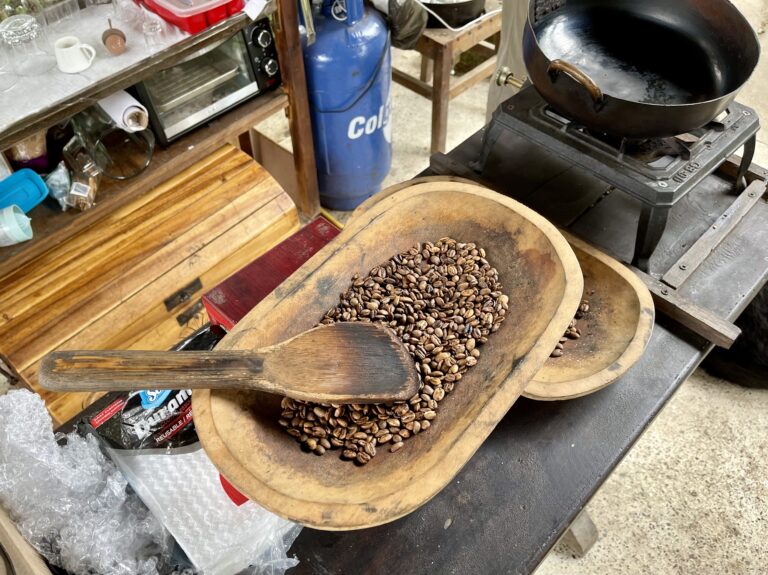
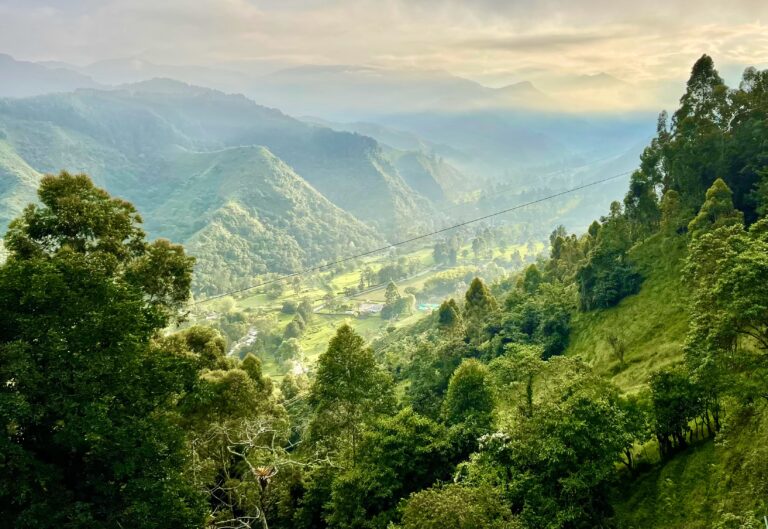
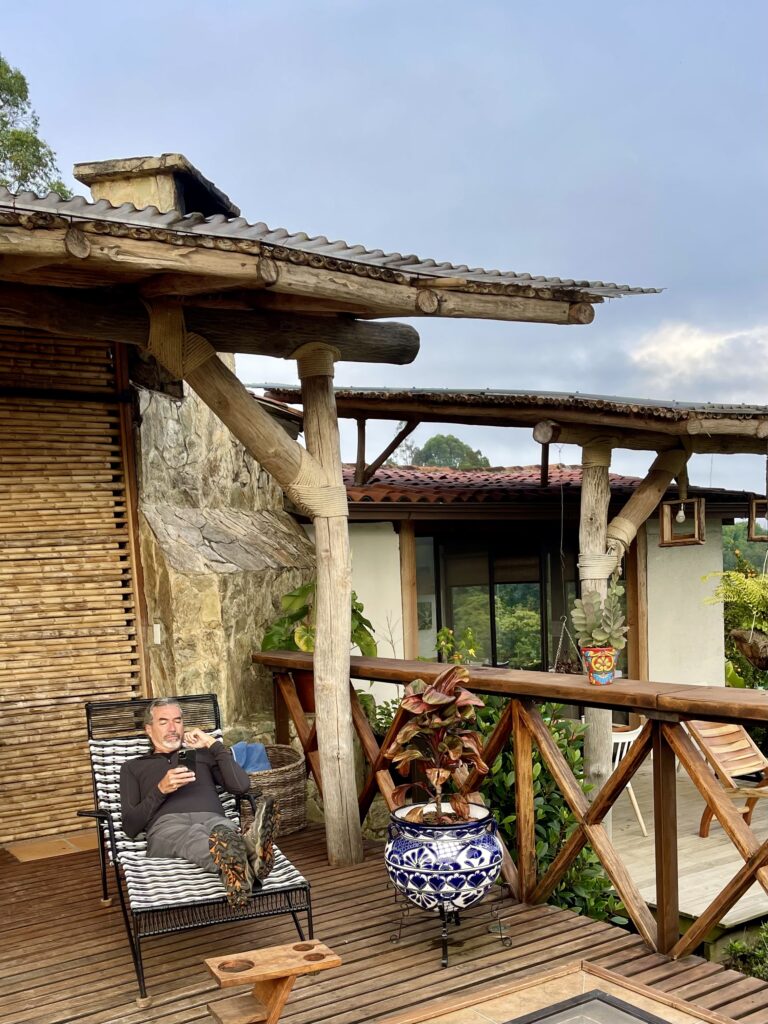
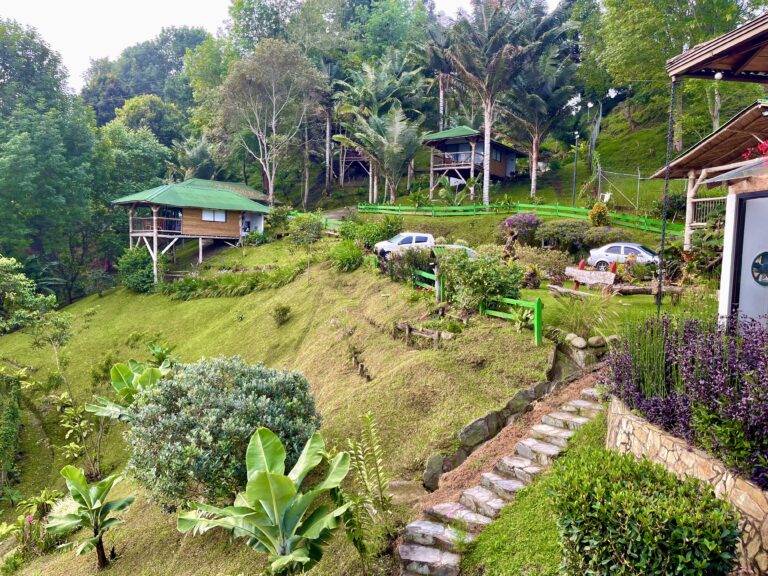
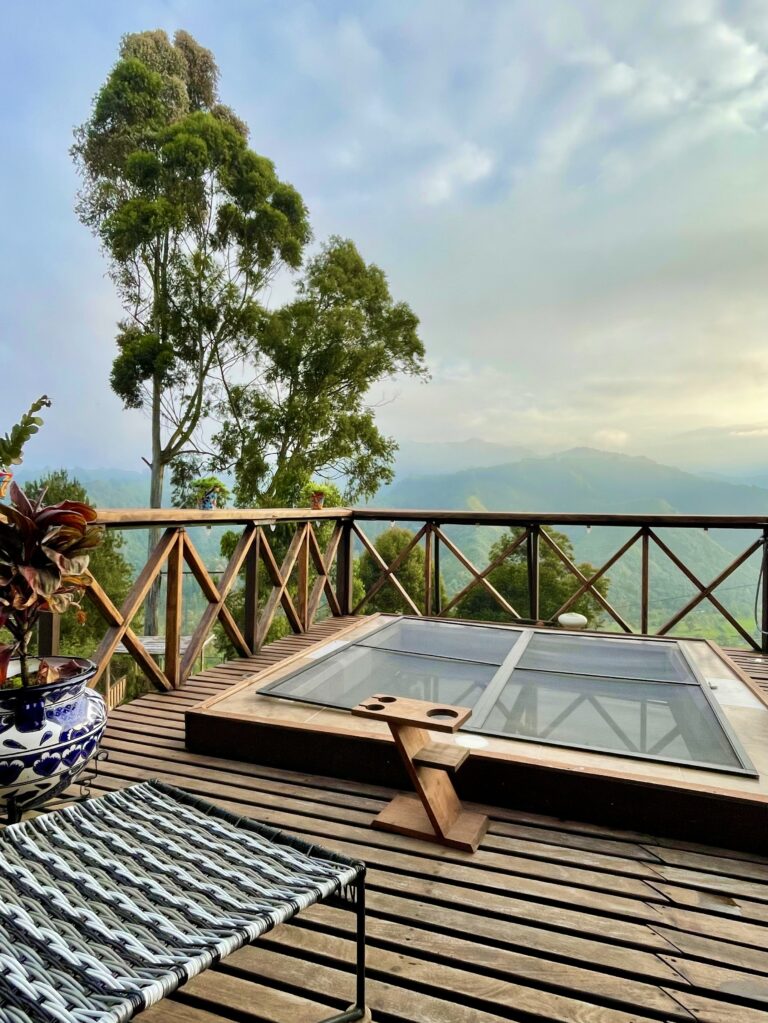
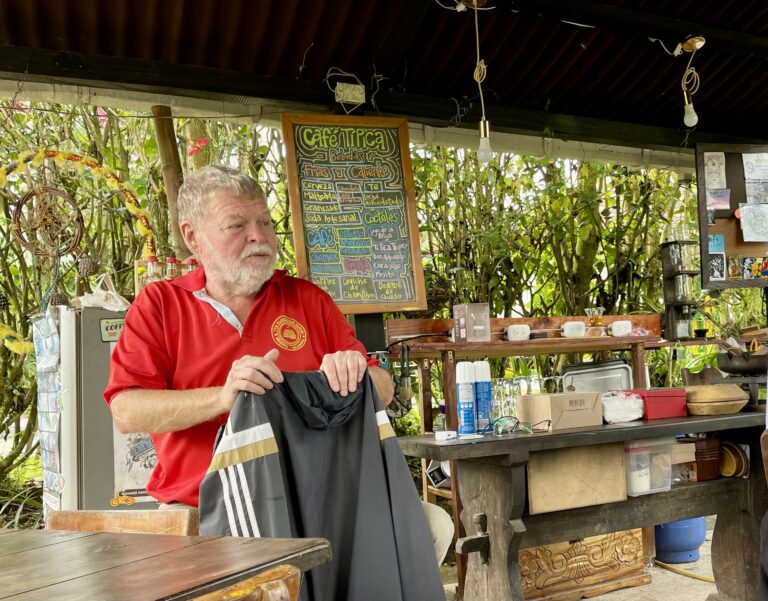
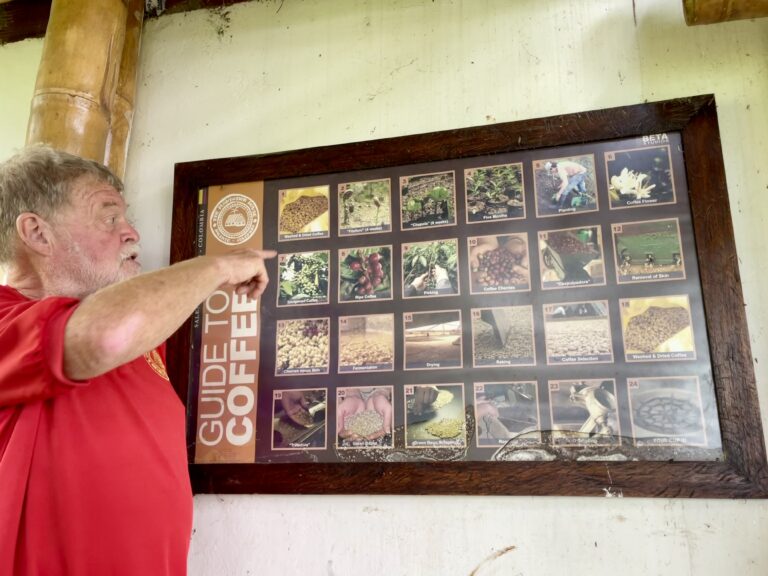
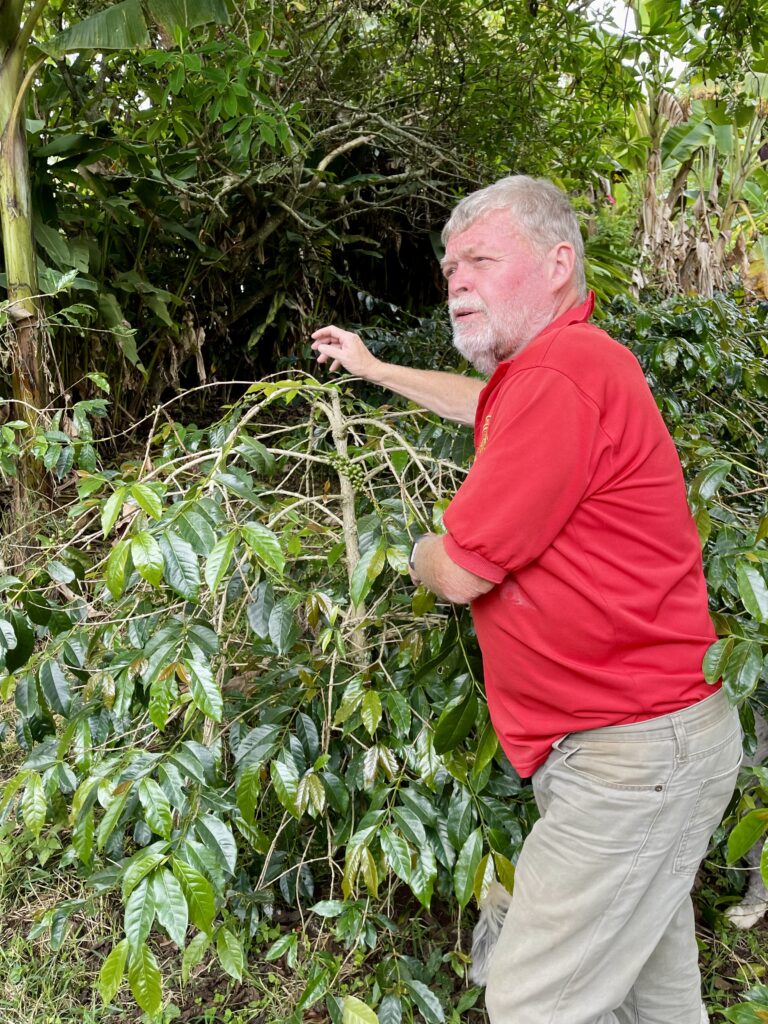
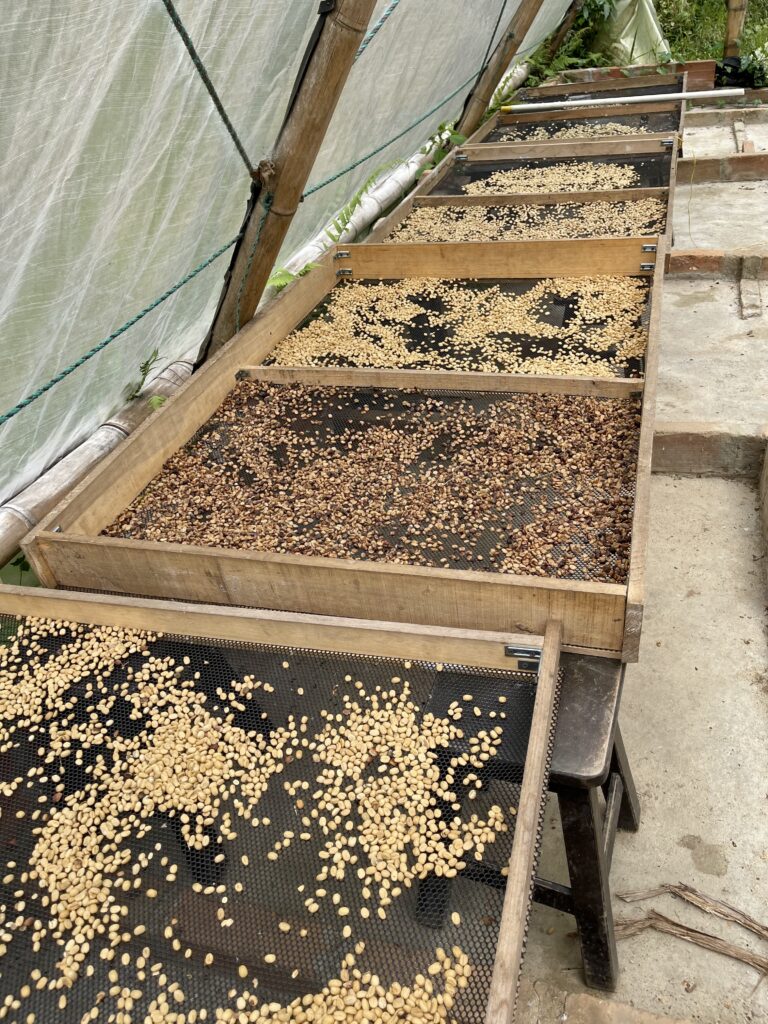
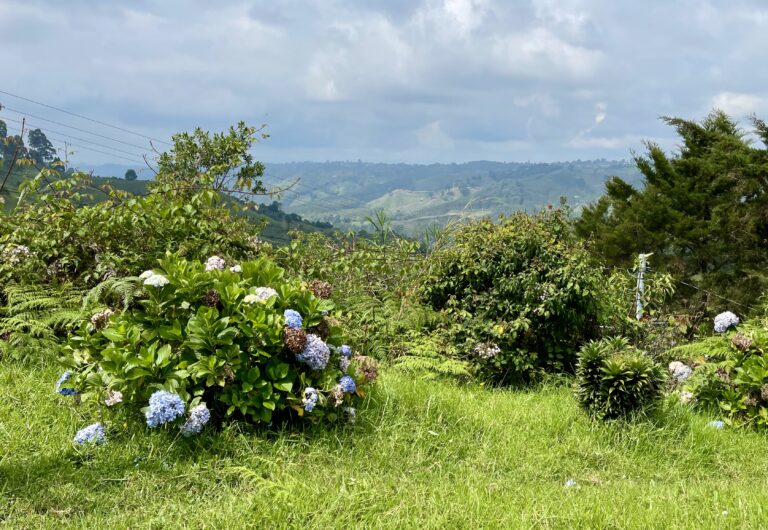
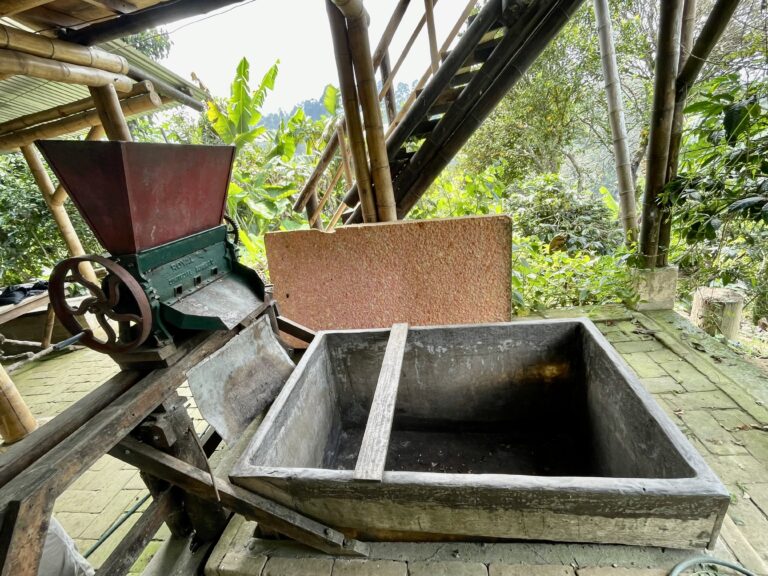
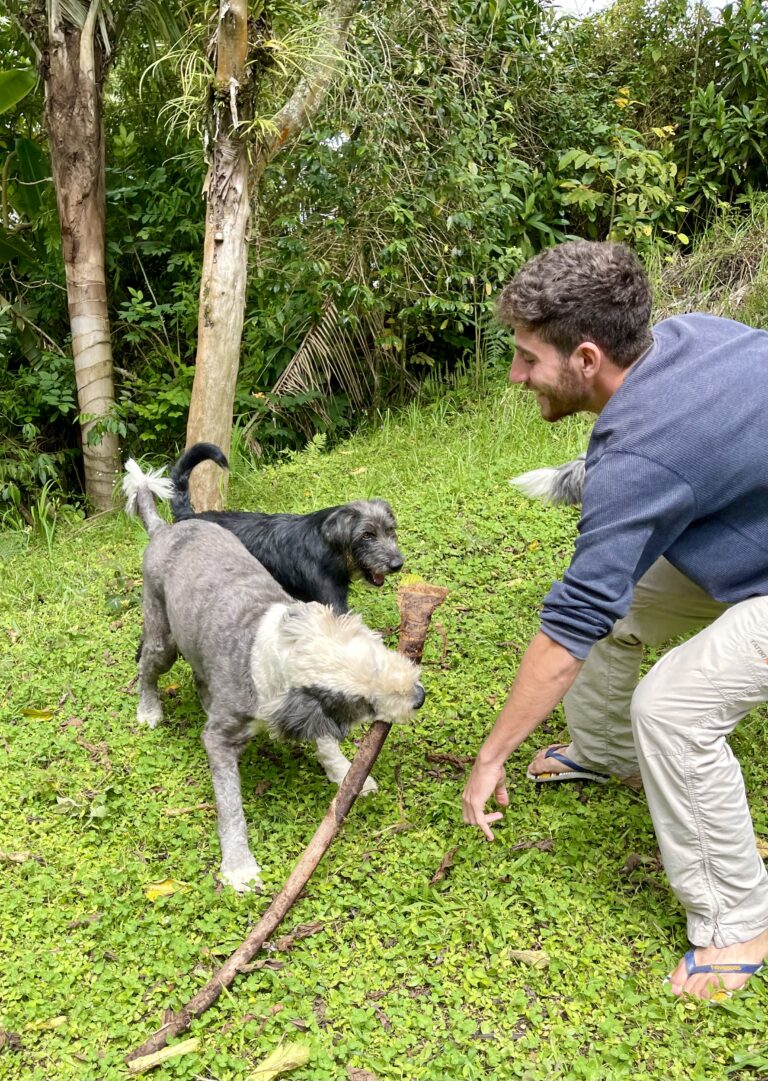
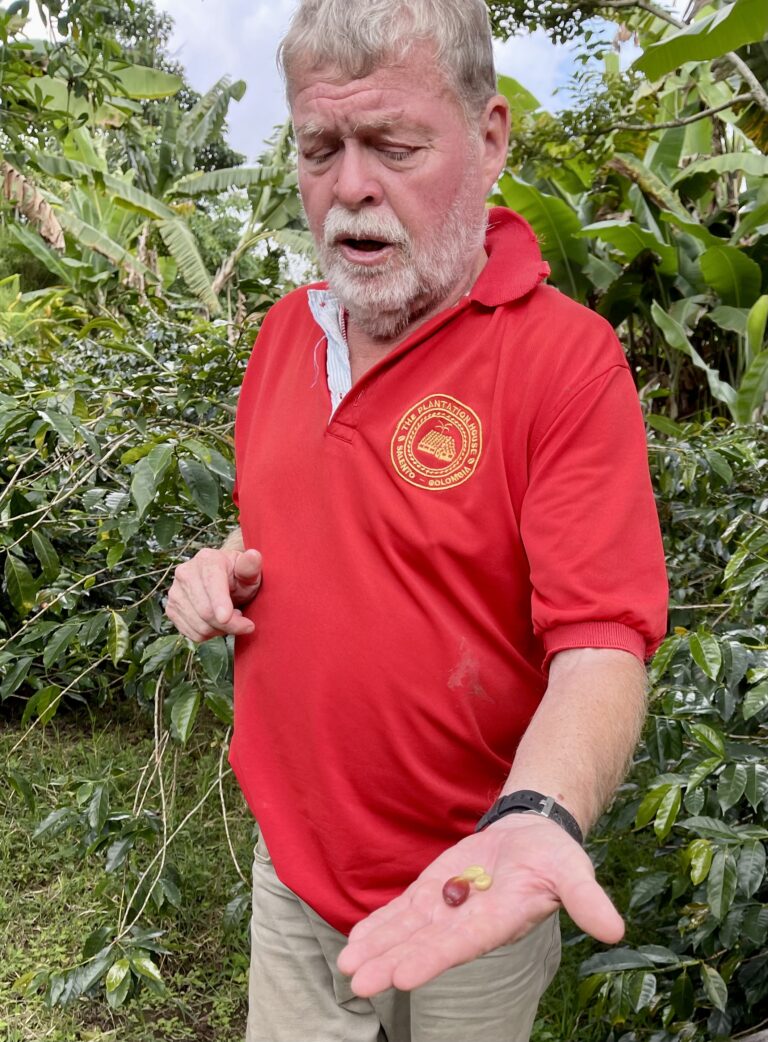
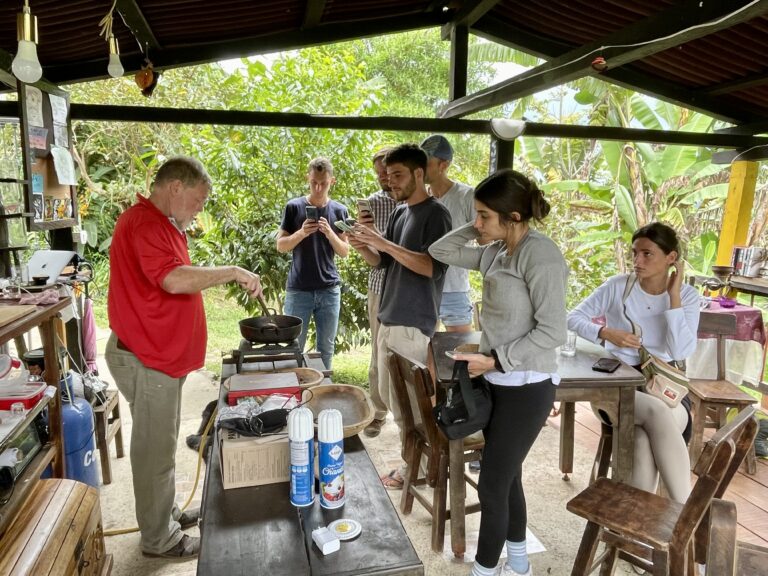
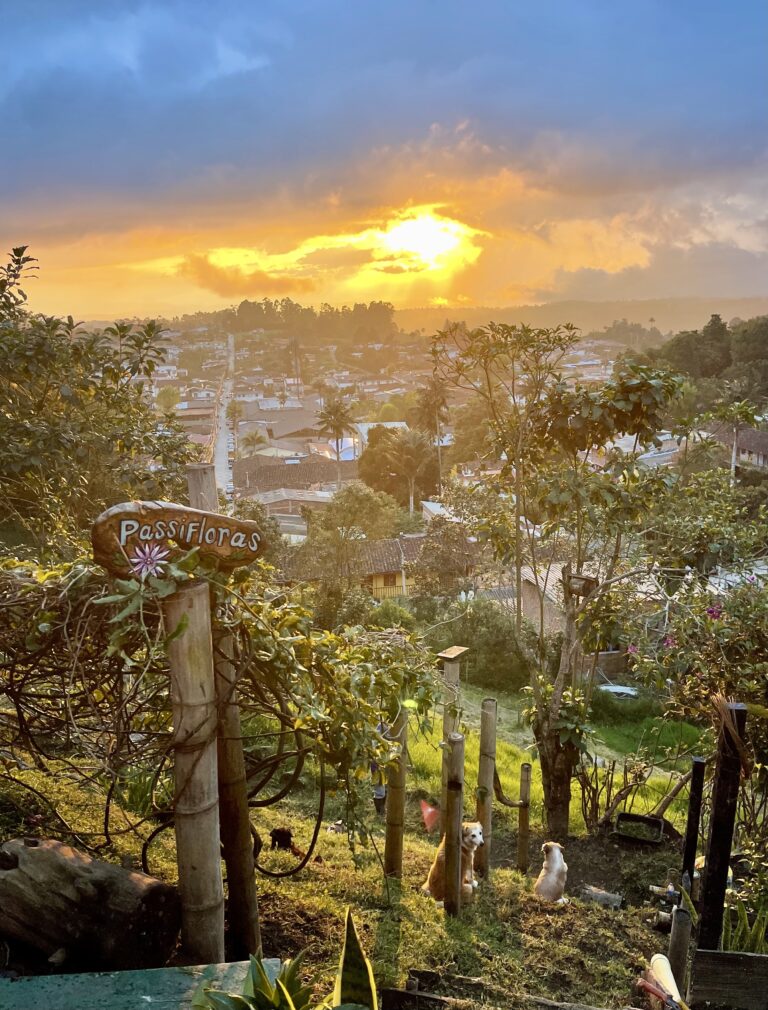
One Response
Sounds percolatingly, drippingly, espressingly amazing!